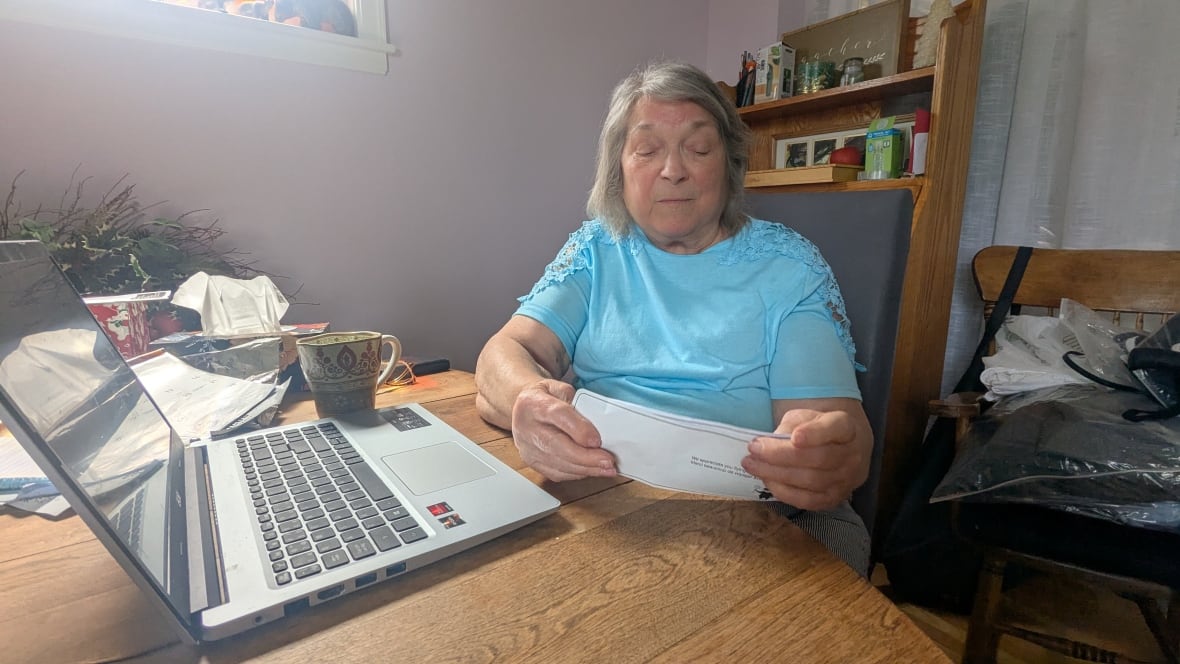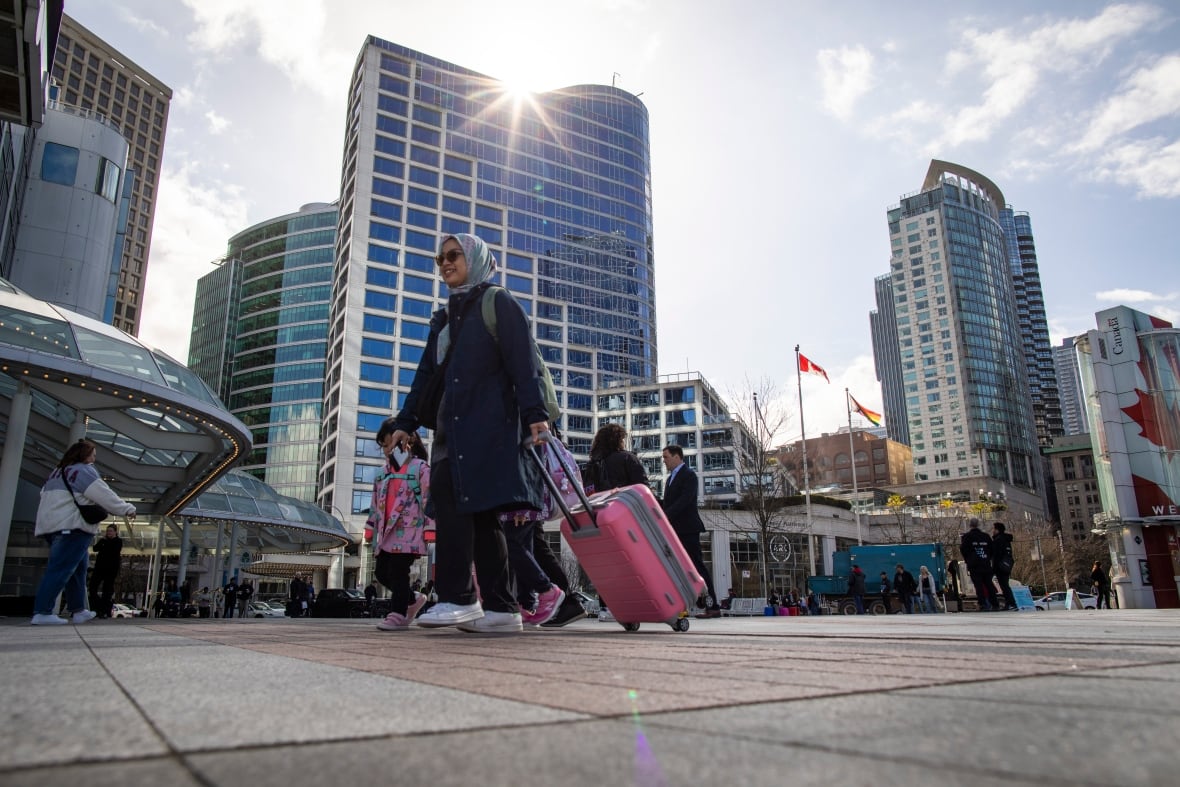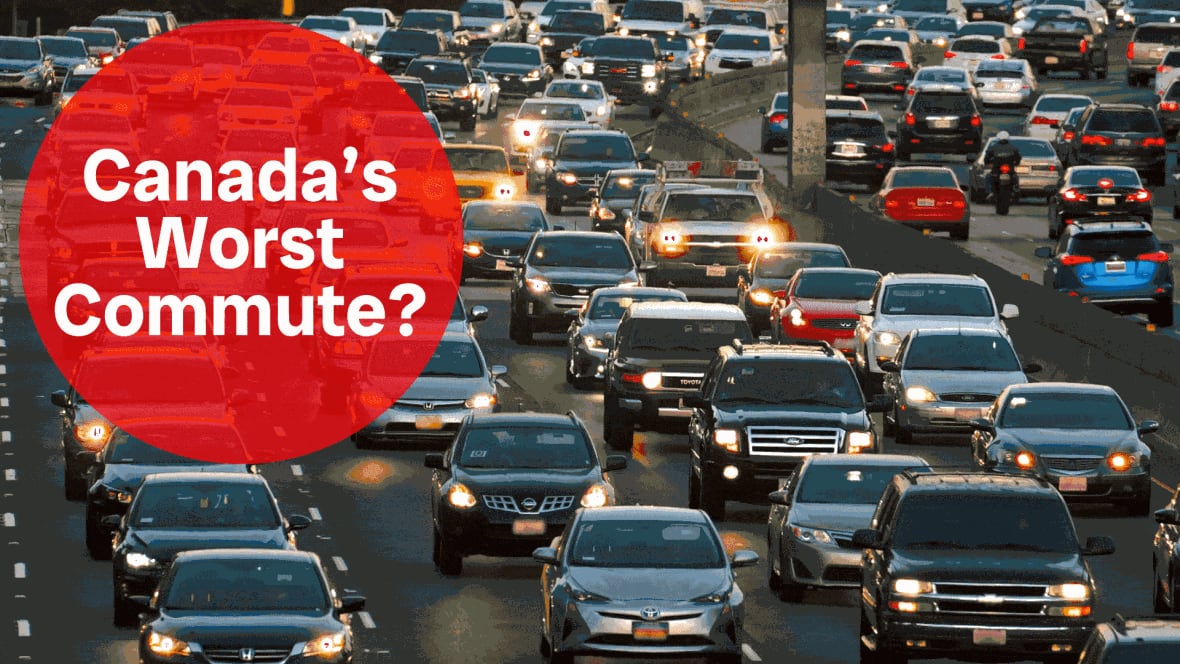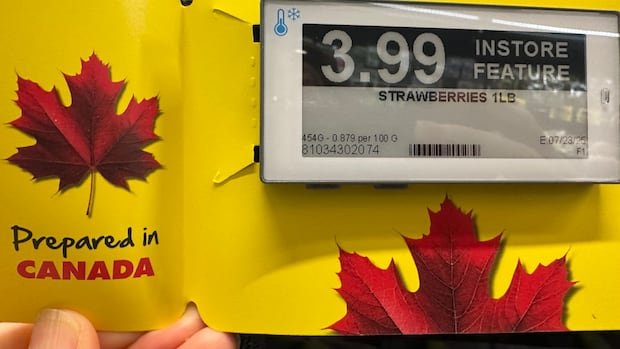Miss something this week? Don’t panic. CBC’s Marketplace rounds up the consumer and health news you need.
Want this in your inbox? Get the Marketplace newsletter every Friday.
A Marketplace story update
After CBC Marketplace’s investigation into big banks upselling customers on products they didn’t need, the Ontario Securities Commission (OSC) sent out a survey to nearly 3,000 mutual fund dealers at the five largest banks in Canada. This review was prompted by a public report of potential investor harm due to alleged high-pressure sales practices at Canadian bank branches.
What they found won’t surprise Marketplace viewers: a quarter of respondents said that clients had been recommended products or services that are not in their interest at least “sometimes,” while one-third said that clients had been provided with incorrect information about the products and services being recommended to them.
Grant Vingoe, CEO of the OSC, added that “while it’s clear many bank representatives are prioritizing quality advice, it is also clear that sales pressures and incentivization may be driving concerning behaviours.”
Read more of the OSC’s survey results here.
CBC investigation finds some big grocers promoting imported food with Canadian branding
Many major grocery chains are trying to draw in ‘Buy Canadian’ conscious shoppers, but when CBC News took a closer look, it found misleading Canadian branding for several imported food products.
Like many shoppers these days, Stacey Dineen, who lives just outside Kitchener, Ont., is all-in on the buy Canadian movement.
“Trump’s comments about annexing Canada, wanting to make us part of the United States, boy, that really kind of lit something,” she said.
Dineen buys Canadian food whenever she can. When she can’t, she looks for imported products from outside the United States.
Canada’s major grocery chains have jumped on the trend, running patriotic ads and pledging to help shoppers buy Canadian.
But Dineen says she gets frustrated when grocers provide conflicting information about where a product comes from.
Last week, for example, she saw organic broccoli at her local Sobeys grocery store. A sign stated it was a “product of Canada,” but the fine print on the tag said “produce of USA.”
“It makes me feel misled,” said Dineen. “At this point, I have run out of patience for it. It feels — at the very least, it’s careless.”
New data from the Canadian Food Inspection Agency (CFIA) and a CBC News investigation suggests country-of-origin mislabelling by grocers is an ongoing problem. It’s also against the rules; in-store food signage must be accurate and not misleading.
The CFIA, Canada’s food regulator, told CBC News that between November 2024 and mid-July, it received 97 complaints related to country-of-origin claims.
Of the 91 complaints investigated so far, the CFIA found companies violated the rules in 29 of the cases, or roughly 32 per cent. Most involved bulk produce sold in stores, and in each case the problem was fixed, according to the agency.
Read more from CBC’s Sophia Harris.
- CBC Marketplace analyzed the price history of some quintessentially Canadian products as the hype around buying Canadian grew. Check out our reporting from earlier this year.
Sydney woman, 85, ‘ached all over’ from climbing stairs after airline didn’t supply ramp

When Carol Rogers’s daughter booked the Cape Breton senior a trip to visit family in Alberta in May, she requested the airline operating out of Sydney, N.S., provide assistance to her 85-year-old mother, who relies on a walker because of arthritic knees.
But when Rogers — who’s been told by her doctor to stop climbing stairs — arrived at the Sydney airport for her flight with Pascan Aviation, there was no wheelchair ramp or lift available, and no ramp when she disembarked in Halifax, either.
“It took me about 10 days to get over the effects of climbing and descending those stairs,” said Rogers in an interview. “I wasn’t very happy. My body ached all over. It was imperative that I get to Halifax to make my connection, so I climbed.”
Rogers and her daughter called both airlines prior to her trip home to again request a ramp be made available. Rogers said she was assured by Pascan that a ramp would be in place when she returned to Sydney from her month-long visit.
When she landed in Sydney, however, no ramp was in sight. Pascan told CBC News it instead offered to carry Rogers down the stairs in what’s known as a Washington chair — a smaller, narrower wheelchair used on aircraft.
“When I got to the door, there was no ramp and I looked around and they said, ‘That’s OK, we’re going to take you down this way,'” said Rogers, adding she was then strapped down with “restraints around my chest and legs.”
Feeling panicked at the idea of being carried down the stairs while strapped to a chair, she decided to walk down the steps to a waiting wheelchair. She described the experience as being subjected to “indignation” and “humiliation.”
Read more from CBC’s Erin Pottie.
- CBC Marketplace has investigated airline accessibility before, most recently last season. Check out the full episode here.
More Canadians may be thinking of a staycation this summer. But has domestic travel become unaffordable?

Whether you’re camping under the stars, jumping off the dock at a lakeside cottage, strolling the coast or exploring a new city, there’s arguably nothing better than a summer vacation in Canada.
Assuming, of course, you can afford it.
From accommodations to flights, Canadians may be noticing higher prices on domestic travel this season. And that’s in part because of increased demand, say industry experts who note more Canadians are opting for summer trips at home instead of travelling to the U.S.
“Canadians are increasingly travelling within Canada,” said Frédéric Dimanche, a professor in the Ted Rogers School of Hospitality and Tourism Management at Toronto Metropolitan University.
And given that the industry is still recovering from losses incurred during the COVID-19 pandemic, combined with inflation, the increased cost of operations, and now, increased demand, this translates into higher prices for consumers — especially in urban centres, Dimanche told CBC News.
“Airlines do this all the time. Hoteliers do this all the time. If there is increased demand, prices are likely to go up.”
For some would-be travellers, the cost is prohibitive or simply too high to justify.
Read more from CBC’s Natalie Stechyson.
What else is going on?
Is Canada-U.S. free trade dead?
North American free trade is teetering on the edge of uncertainty as U.S. President Donald Trump’s tariffs continue to complicate how goods come and go. Andrew Chang explores signs that free trade — as we’ve come to know it — is on its way out, and challenges that may lie ahead in renegotiating the Canada-U.S.-Mexico Agreement (CUSMA).
A Blue Jays fan had his tickets stolen online. Here’s how to prevent it from happening to you
The fan received a full refund from StubHub and free tickets from Blue Jays after CBC reached out about the ordeal.
Tesla’s profits fall again as Musk hopes robotaxis will offset declining sales
EV company says revenue dropped 12 per cent between April and June.
Marketplace needs your help!

Whether you live in St. John’s, Victoria or anywhere in between, everyone’s got traffic trouble, and we all think we’ve got it the worst. So we’re looking for your traffic tribulations.
Email us at marketplace@cbc.ca and tell us why your commute is the worst. It could be a road that’s always under construction, an intersection that’s always gummed up or your full commute from start to finish. Be local and as specific as you can — we want to get into the nitty-gritty of the roadways in your life that drive you crazy. Your submission could be crowned Canada’s worst commute and could be featured on an upcoming episode of Marketplace.

What’s your sun care story? Whether you’ve found the perfect sunscreen or you’re still searching, we want to hear what works for you (and what doesn’t). Email us at marketplace@cbc.ca and give us the “glow-down” on how you are staying sun safe!

Mind Your Business is your weekly look at what’s happening in the worlds of economics, business and finance. Subscribe now.
Catch up on past episodes of Marketplace on CBC Gem.




